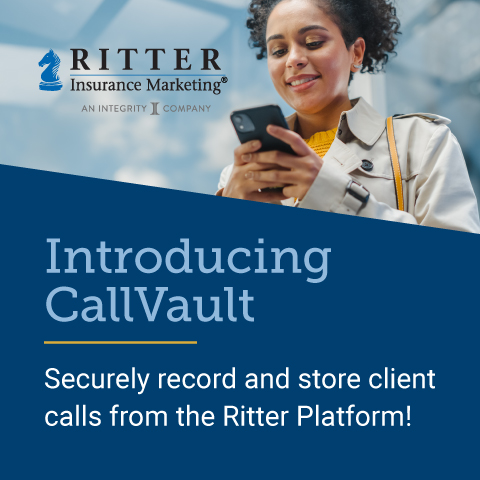When your clients are applying for health care coverage, the last thing you want is for them to fall victim to fraudulent sales practices.
When the Annual Enrollment Period (AEP) is in full swing, so are the scams. That’s why there’s no better time to help your clients protect themselves and learn how to identify potential threats.
Unsolicited Calls from “Medicare Representatives”
Clients need to be wary of anyone calling and claiming to be a Medicare representative. It is against the Centers for Medicare & Medicaid Services (CMS) rules to cold call, and they should hang up immediately.
It is against CMS rules to cold call, and they should hang up immediately.
Some scammers can even tamper with a caller ID and make it look like the number is coming from a Medicare office. To be safe, your clients should never give any of their information over the phone. It’s best to tell them to wait until they have a meeting with you, their current insurance agent.
Use of Superlatives or Time Restraints
CMS will never endorse a plan, which means a client should never hear that there is a “best” plan option they need to choose. While they should be enrolling in a plan that best fits their needs, hearing a superlative when referring to a plan should be an immediate red flag.
When you meet with your clients, make sure they know that during AEP, every Medicare-eligible beneficiary has until December 7 to make an enrollment decision. Advise clients that anyone who makes them feel pressured to enroll in a plan right away is most likely a scammer.
For example, someone might call a Medicare beneficiary and tell them they must enroll in plan by noon that day so they won’t have a lapse in their coverage. We, as insurance professionals, know that’s not how it works and it’s simply not true. Clients on the other hand might panic and make a rash decision.
Private Insurance Scams
Clients can also fall victim to scams from private insurance companies selling Medicare Advantage plans. Sometimes these scammers will sell your client a plan that isn’t available in their county, leaving them with more out-of-pocket expenses but no coverage.
Encourage clients to ask you questions about plan options and the enrollment process before they decide to make a purchase.
A great way to avoid this is for your clients to be educated. Encourage them to ask you questions about plan options and the enrollment process before they decide to make a purchase.
Final Tips for Avoiding Scammers
Scammers are always going prey on the vulnerable, and the insurance world can be tough to navigate for many beneficiaries. Even the savviest consumer could fall victim. Here are some final tips to help your clients avoid common scams.
- Keep personal information private
- Never accept gifts or freebies “paid for by Medicare”
- Ignore pressure to enroll in any plan
- Report potential scams right away to 1-800-MEDICARE
AEP is the perfect opportunity for scammers to try and take advantage of people. It’s important you do your part to educate clients on these scam tactics. Make sure they know that you are their point of contact regarding their plan(s) and insurance questions. You have their best interest at heart and the power to keep clients safe and satisfied with their health coverage!





Share Post